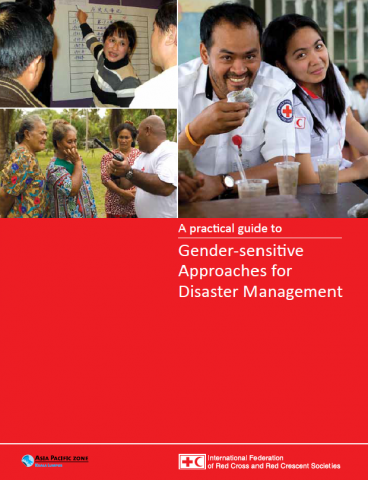A practical guide to gender-sensitive approaches for disaster management


These guidelines are intended to help Red Cross and Red Crescent National Societies and the International Federation of Red Cross and Red Crescent Societies (IFRC) incorporate effective gender-sensitive and inclusive approaches into their disaster management strategies when assisting communities prepare for, respond to, and recover from disasters.
While the gender-sensitive and gender-inclusive approaches referred to throughout these guidelines address the needs of both men and women, greater focus is placed on addressing the needs of women, as it is recognised that women more often carry additional disadvantages due to gender than men. These disadvantages can be amplified within some communities and cultures, especially when women are single, divorced, widowed or childless.
These guidelines provide background information on IFRC policy context for gender-sensitive disaster management programming. They identify key issues to consider, and actions to take when working in all phases of disaster management in order to develop disaster risk reduction (prevention, mitigation and preparedness), response, and recovery initiatives that equally involve and benefit men, women, boys and girls. This includes a specific focus on developing the organisational capacity of National Societies to achieve gender equality both in disaster management programming and in their general work.
– IFRC, 2010
